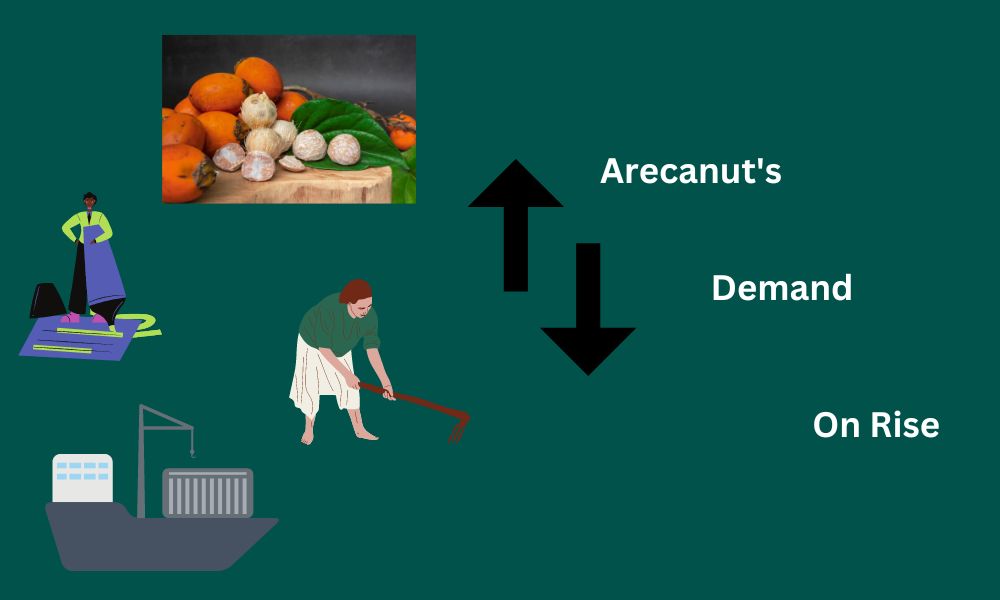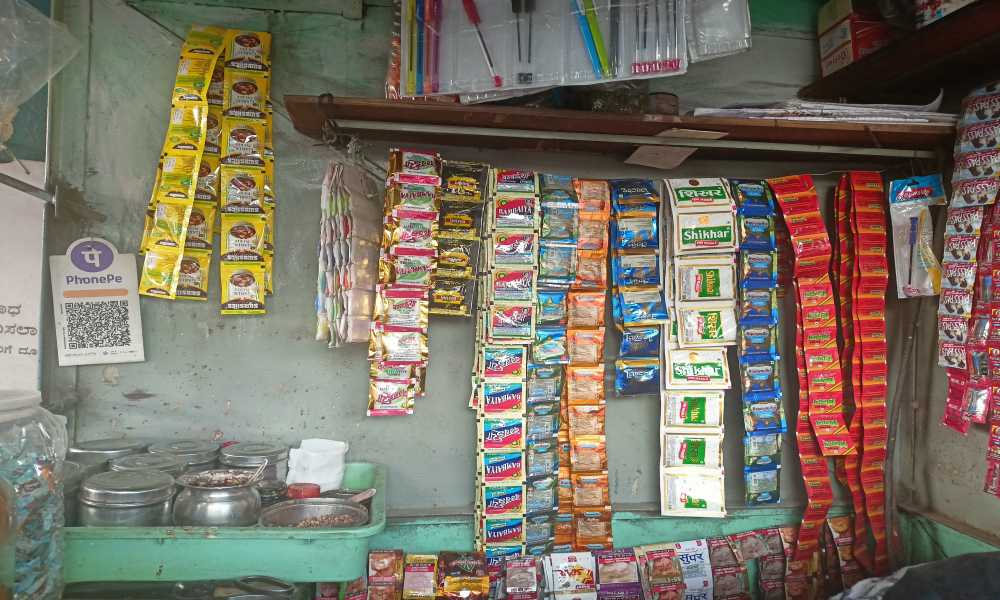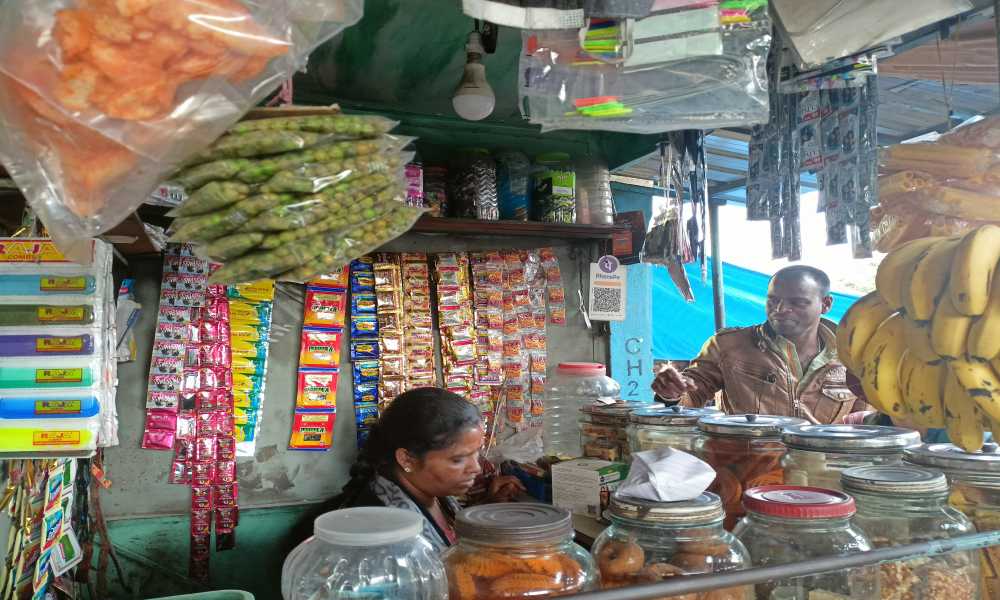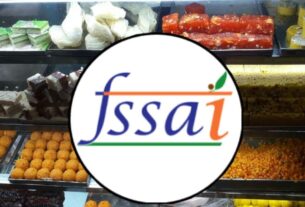Areca nut production has increased by 2.4 lakh hectares last year.
Thejappa, an areca nut plantation farmer in Shivamogga will have to wait longer to build his new house. Last year, the the market price for areca nuts went down by 50 percent. Thejappa has been growing arecanut for more than a decade now. He said that the price for a quintal in 2018-19 was around Rs. 90,000 which later reduced to Rs.45,000 in 2021-2022. The growing imports from countries like Bhutan, Myanmar, and Sri Lanka which are ready to give away their produce at low prices due to the on-going financial crises and weak economic conditions has caused the decline in prices, according to Thejappa.
“Growing areca nuts is like an investment for us, as it takes seven to eight years for the plants to grow and flourish. We planned to build a house with the savings and profit based on the sale, but it seems like we will have to wait for longer,” said Thejappa.
Despite the increase in production of its by-products like pan masala and supari, it is still not sufficient to cater to the country’s needs. India is still importing areca nuts from countries like Bhutan and Sri Lanka.
The data from the Department of Horticulture shows that the area to produce areca nuts increased by 21 percent in 2020–21 to approximately 5,60,000 hectares as compared to that in 2018–19 in Karnataka. Adding to that, the state witnessed a surge in areca nut production by 39 percent in 2020-21 as compared to the produce of 2018-19 Karnataka produced around 8,63,000 metric tons of areca nuts in 2020-21. The imports from countries like Sri Lanka, Myanmar and Nepal shot up by 76 percent in 2022 as compared to the imports in 2019 that stood at 13,000 metric tonnes.
A press release from the Ministry of Commerce and Industry shows that more than 56 percent of Ready to Eat (RTE) products were exported in 2021. Pan Masala and betel nuts accounted for 5.95 million dollars. A report from a market research organisation shows that the market is anticipated to display a compound annual growth rate (CAGR) of around 3.4 percent for the forecast period of 2023 to 2028. The pan masala market size in India reached Rs. 43,410.2 crore in 2022 and is expected to reach Rs. 53,672.3 crore by 2028.
The increasing demand for areca nut products across countries like India, the United States, Sri Lanka, Nepal, Thailand, Singapore, and others for pan, scented supari, and pan masala is driving the production of areca nut in India, shows the market report.
“We never fall short of customers, they always increase. On an average, on daily basis we manage to earn Rs.3000 to Rs.4000 by selling masticators like pan masala and supari. Sometimes, when I am not there in the shop, my wife runs it on behalf of me, although she doesn’t understand much about the shop or business,” said Rajiv, who has been running the shop for 15 years at a corner of the bus stop in Kumbalgodu.
Nimish, an economist who has completed his PhD from Delhi University, said, “It is clear that the pan masala and gutka industries are growing at a huge pace. But we need to focus on the export, and improve the quality of seeds so that we can enter into the premium market and pitch higher prices to the world,” he said.
Krishna Raj, Professor of Social and Economic Change, Bangalore, said, “We cannot control the export and import of products like gutka, supari, and pan masala unless they are essential goods like paddy and wheat. Commercial goods like areca nutS cannot be regulated by the government.” He said, in India there were no proper regulations for products like pan masala and supari to make them health efficient.
He also said that the government should conduct a study to examine the consumption, demand and supply of areca nuts to understand how it could benefit the economy of the country and the society at large.
The Assistant Director General of Foreign Trade Ministry of Commerce and Industry, Karnataka, said that they were neither promoting the import of areca nuts nor its production in the country. “The recent import of 17,000 metric tonnes from Bhutan was made to India under the Free Trade Agreement. As the Minimum Import Price (MIP) could only be levied on them if the imports go beyond that,” said the officer from the Directorate General of Foreign Trade (DGFT) department. She also said that one of the reasons that the production is not fulfilling the market demand and the produce from domestic market is not enough.






